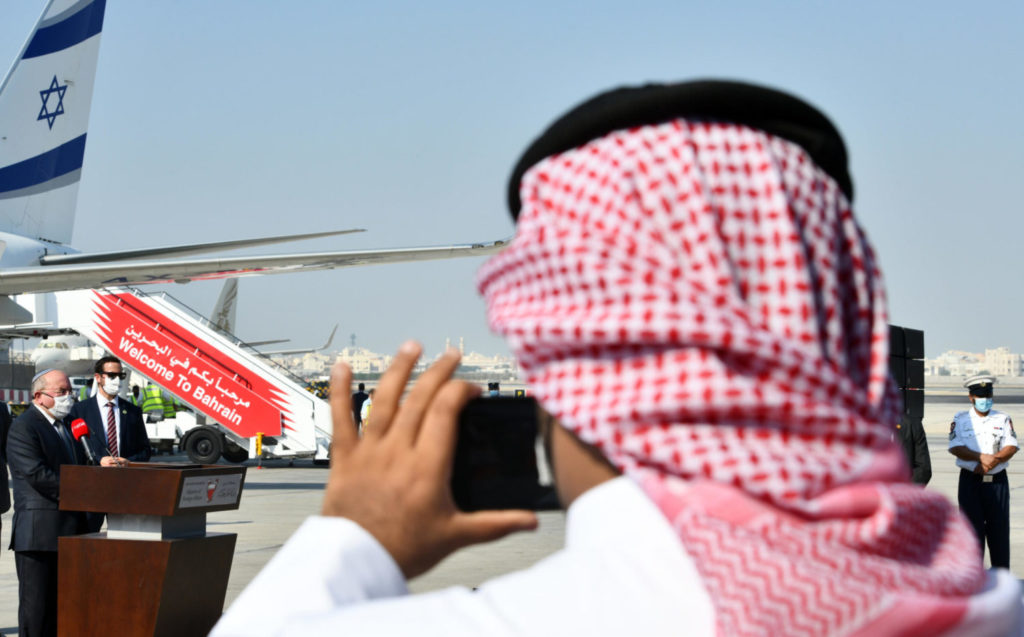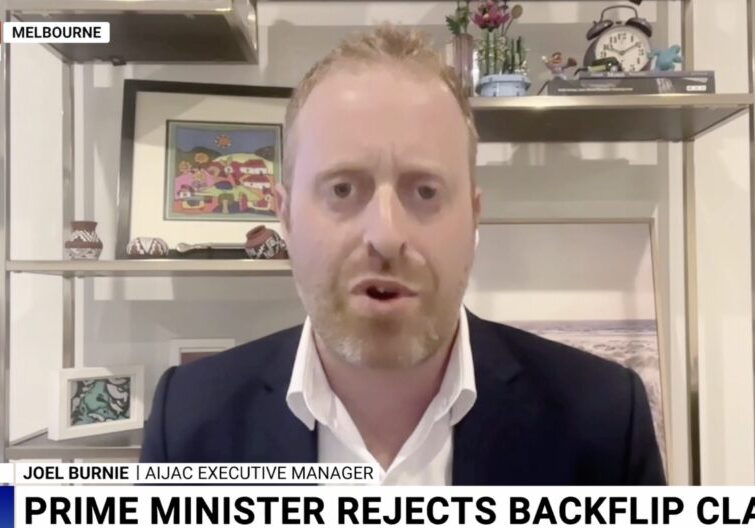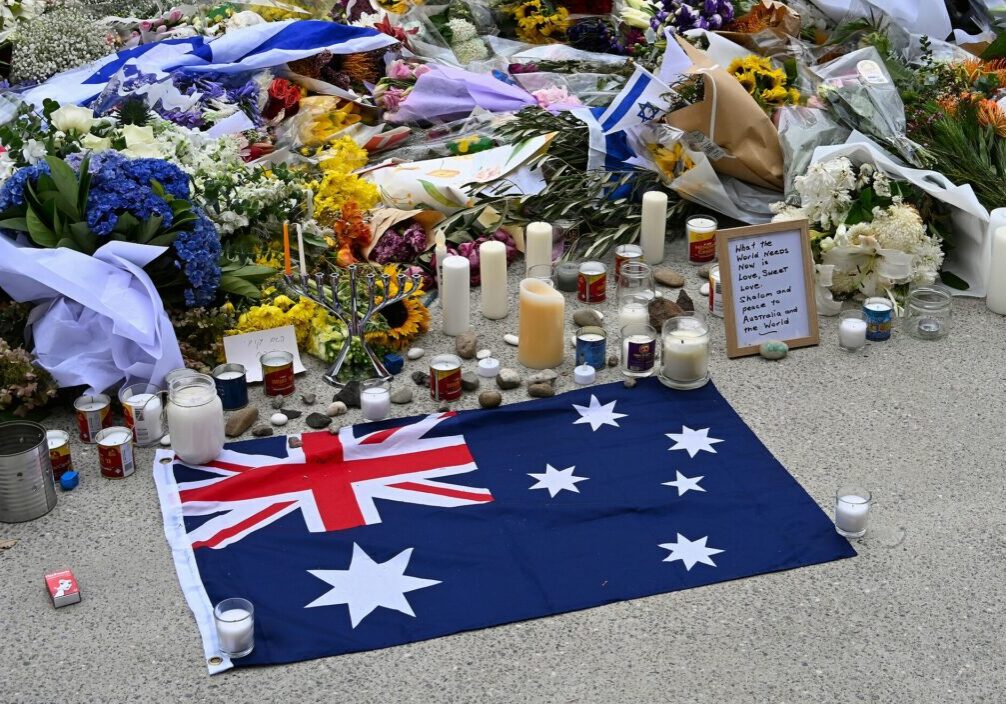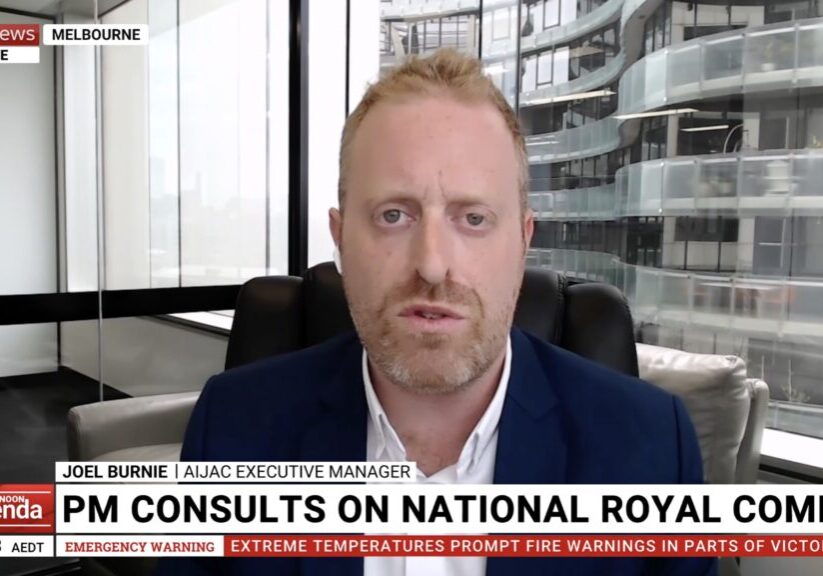Australia/Israel Review
Media Microscope: Descendants of Abraham
Nov 4, 2020 | Allon Lee

Media shockwaves from the historic Abraham Accords signed by Bahrain and the UAE with Israel on Sept. 15 continued to ripple out well into October.
On ABC Radio National “Saturday Extra” (Sept. 26), former Palestinian Authority legal adviser Diana Bhuttu said the accords are “not peace agreements…because there was no state of war,” adding, “you can’t normalise with a country that isn’t normal.”
Bhuttu dismissed host Geraldine Doogue’s question about Palestinian rejection of Israeli offers to create a Palestinian state, accusing Israel of never having attempted to “decolonise”, i.e. unilaterally uprooting settlements and withdrawing its army.
Except, it tried that in Gaza in 2005, but Hamas quickly usurped control and turned the territory into a terrorist base.
Bhuttu claimed Israel rejected the March 2002 Saudi peace plan which offered Israel peace and normalisation with all Arab countries in exchange for an ending “their military rule and… colonisation.”
The Saudi plan – issued on a take it or leave it basis at the height of the Second Intifada – was actually similar in many ways to Israeli offers the Palestinian Authority rejected, except it included language insisting on the legally baseless Palestinian “right of return” incompatible with a genuine two-state peace.
Bhuttu also absurdly claimed that Palestinians and Arabs have never “denied… Jewish attachment to the land.”
Following Bhuttu, US academic Rashid Khalidi was less bombastic but equally maximalist in his ideological positions.
Dismissing the UAE and Bahrain as “regimes”, he suggested normalisation with Israel was dishonourable, and lamented the PLO’s signing of the Oslo Accords which “cemented occupation”.
Apparently referring to the late King Hussein of Jordan and President Anwar Sadat of Egypt, he said “this is not the first time that unpopular or undemocratic, in many cases hated Arab regimes, have entered into agreements with Israel.”
On ABC Radio National “Saturday Extra” (Oct. 3), Kuwait University’s Bader Mousa Al-Saif told Doogue that Kuwait will be “the last Arab country to normalise” because there is “huge pro-Palestinian support… so trying to change that will not come as easily as… in other Gulf capitals.”
Doogue noted that the Palestinians “were suspected of supporting” Iraq’s invasion of Kuwait in 1990 and “many Palestinians living in Kuwait fled during and immediately after the Gulf War.”
Al-Saif said not all Palestinians supported the invasion but “reducing the presence of Palestinians after liberation” and engagement at the official level whilst maintaining humanitarian aid “speaks to the farsightedness of Kuwaiti policymaking.”
Kuwait’s rulers were so “farsighted” that today there are only 80,000 Palestinians living in Kuwait, down from 400,000 in 1990.
On the same program, Lowy Institute analyst Rodger Shanahan said the UAE signing was “certainly significant…perhaps less so Bahrain” and predicted “a couple of other more fringe countries” might follow but not “Kuwait or Saudi Arabia.”
An informative and balanced ABC Radio National “Rear Vision” program on Oct. 4 explored the evolving attitudes of Arab countries towards Israel from 1948 till 2020.
In the Spectator Australia (Oct. 17), Executive Council of Australian Jewry co-CEO Alex Ryvchin said the Accords have shattered the “idea that normalisation of relations between Israel and the Arab states was inseparable from the Israeli-Palestinian peace process” and undermined foreign policy experts, such as Obama-era US Secretary of State John Kerry, who insisted in 2016: ‘There will be no separate peace between Israel and the Arab world. I want to make that very clear to all of you… Everybody needs to understand that.’”
Ryvchin said, “The possibility that the Arab world might be fatigued with the Palestinian issue was not one Kerry was willing to entertain. To do so would upend conventional wisdom in the Washington and European foreign policy establishments.”
Reports about the official Israeli delegation which travelled to Bahrain to sign a communique establishing formal diplomatic ties between the two countries ran only on the ABC website (Oct. 19) and in the Canberra Times (Oct. 20).
SBS’s website reported on the Trump Administration’s push to convince Sudan to make peace with Israel by using the “leverage” of removing it from the US State Sponsor of Terrorism list. The story noted that “Sudan’s top general, Abdel Fattah al-Burhan, in February held a landmark meeting with Israeli Prime Minister Benjamin Netanyahu in Uganda.”
Tags: Australia, Gulf states, Israel, Media/ Academia






